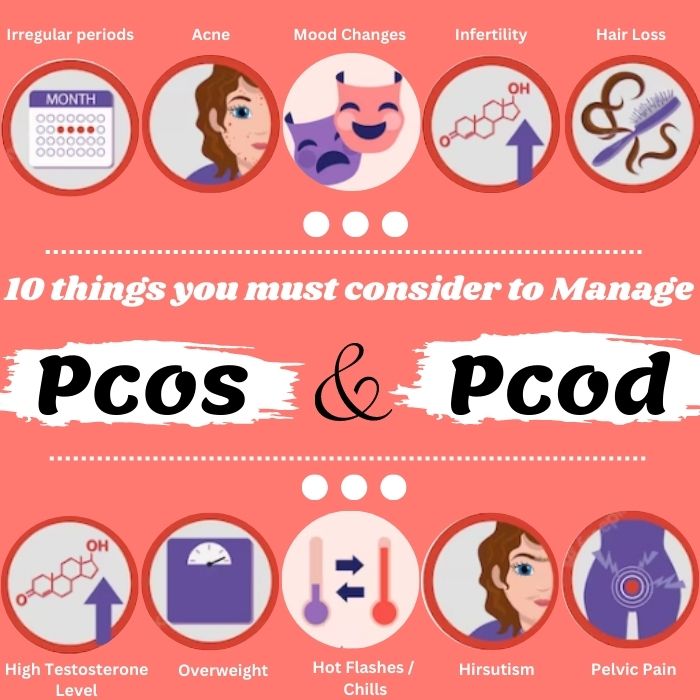Consult With Best Dietitian in Delhi Today!
Book an Appointment10 Things You Must Consider To Manage PCOS & PCOD

Common hormonal abnormalities that affect many women worldwide include polycystic ovary syndrome (PCOS) and polycystic ovary disorder (PCOD). A woman's emotional and physical health can be significantly impacted by these diseases, which are characterized by a variety of symptoms including irregular menstruation periods, acne, and weight gain.
If you or someone you know is struggling with PCOS or PCOD, I Shreya Katyal- the best Dietitian In Delhi, at Diets & More, here with a few essential things to keep in mind when it comes to managing the condition. In this blog, I will exemplify 10 pivotal considerations that can help you take control of your health and improve your quality of life. Let’s get started:
Maintain a healthy weight: Excess weight can worsen PCOS and PCOD symptoms, so it's vital to maintain a healthy weight through diet and exercise. Losing just 5-10% of your body weight can improve insulin resistance, regulate periods, and reduce androgen levels.
Eat a balanced diet: A balanced Diet Plan For PCOS/PCOD that is rich in whole foods and low in processed foods can help regulate insulin levels and improve symptoms. Eating a diet that is high in protein, fiber, and healthy fats can help keep you full and reduce cravings.
Exercise regularly: Regular exercise can improve insulin resistance and help you maintain a healthy weight. It can also help reduce stress and improve mood, both of which can impact PCOS and PCOD symptoms.
Manage stress: Stress can worsen PCOS and PCOD symptoms, so it's crucial to find ways to manage stress. Try relaxation techniques such as meditation, deep breathing, or yoga, and make time for activities that you enjoy.
Get enough sleep: Getting enough sleep is critical for overall health, but it's especially necessary for women with PCOS and PCOD. Lack of sleep can worsen insulin resistance and lead to weight gain, so aim for at least 7-8 hours of sleep each night.
Monitor your blood sugar: Women with PCOS and PCOD are at a higher risk of developing insulin resistance and type 2 diabetes. Monitoring your blood sugar levels regularly can help you identify any issues early and make the necessary changes to improve your health.
Consider medication: In some cases, medication may be necessary to manage PCOS and PCOD symptoms. Talk to your doctor about whether medication may be exemplary for you, and discuss the potential risks and benefits.
Get regular check-ups: Regular check-ups with your doctor can help you monitor your symptoms and identify potential health issues early. Make sure to discuss any concerns or questions you may have with your doctor.
Educate yourself: Educating yourself about PCOS and PCOD can help you better understand your condition and make informed decisions about your health. Look for reliable sources of information such as medical journals, books, and reputable websites.
Seek support: Living with PCOS and PCOD can be challenging, but it's important to remember that you're not alone. Seeking support from family, friends, or support groups can help you cope with your symptoms and improve your overall well-being.
Managing PCOS and PCOD requires a holistic approach that includes lifestyle changes, medication (if necessary), and regular check-ups. By making these ten things a priority, women with PCOS and PCOD can improve their symptoms and live healthier, happier life. Remember, managing PCOS and PCOD is a journey, and it's significant to be patient and kind to yourself along the way. Get in touch with me for Online Consultation for the best Diet Plan For PCOS/PCOD problems. Ring now.
